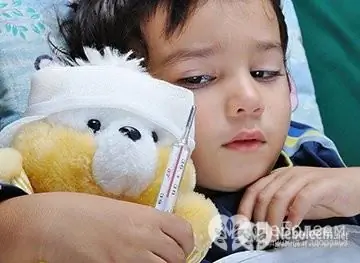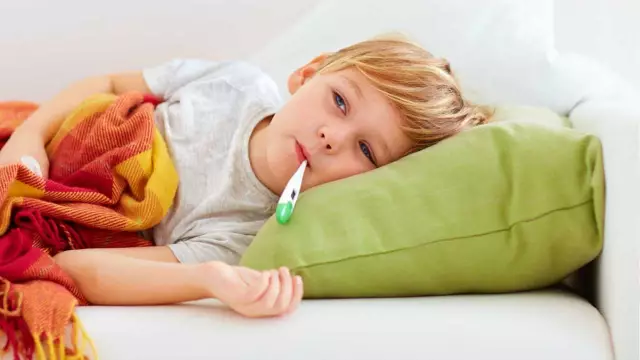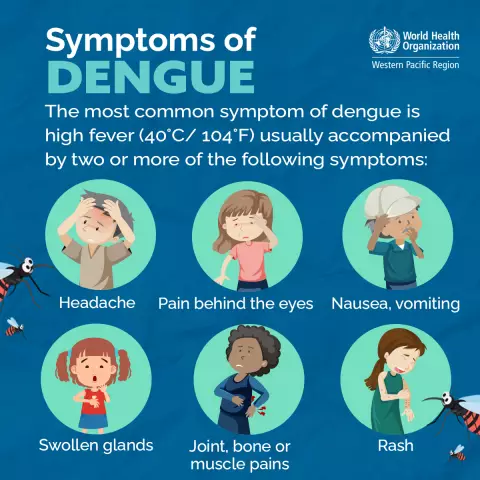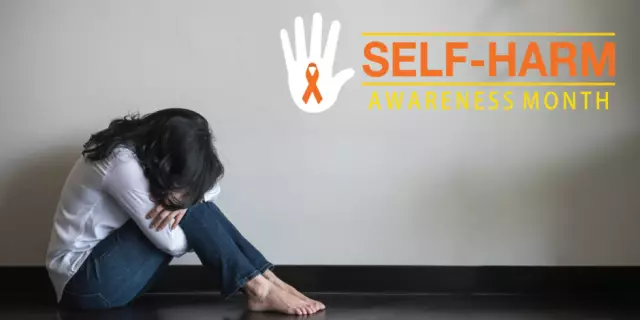- Author Rachel Wainwright wainwright@abchealthonline.com.
- Public 2023-12-15 07:39.
- Last modified 2025-11-02 20:14.
What to do if a child is sick

Age up to 1 year is called breast, it is characterized by several features. First of all, an intensive metabolism - based on 1 kg of body weight, the need for food in a child under one year old is 2-2.5 times higher than in an adult. This explains the high load on the baby's digestive system, therefore, the situation when a child under one year old fell ill with signs of an intestinal disorder is far from uncommon. Babies are more likely to suffer from dyspepsia, bacterial and viral infections of the gastrointestinal tract, as well as chronic eating disorders. Also during this period, there is an active formation of musculoskeletal structures, therefore, so that a child does not fall ill with rickets for up to a year, sufficient intake of vitamin D, fresh air and sunlight is necessary.
But more often children get sick with ARVI. The respiratory organs of a child under the age of one year experience increased stress, and the mucous membranes are still too vulnerable to infection. If mothers turn to a pediatrician, it is usually due to the fact that the child is sick with ARVI. How should parents care for their baby and when to sound the alarm? We will try to answer these questions.
How to tell if a child is sick
If a child has a cold, the illness can disappear without a trace or cause serious complications, especially in breastfed infants. When breastfeeding, immune protection is provided by antibodies that are passed on in breast milk. By about 6 months, this natural defense begins to weaken, and parents need to monitor the condition of their child in order to determine in time that the child is sick with ARVI.
The main signs that a child is sick are changes in behavior. The baby may be capricious and refuse to breast, be too lethargic or overexcited. The main sign that a child is sick with ARVI is a fever, during which the body temperature rises above 37 ° C, and in the rectum above 38 ° C. If a child falls ill for up to a year, his condition is accompanied by chills, the forehead becomes sweaty and hot, and his eyes shine. These symptoms indicate the body's immune response to infection. At elevated temperatures, the reproduction of pathogenic microflora slows down sharply, which is why it is not always recommended to shoot it down. It is much worse when the fever is combined with shortness of breath, shallow breathing, nausea and vomiting, and also if the child refuses to take fluids (refusing to eat is normal). If you find these symptoms,show your baby to a doctor immediately.
You noted a fever and realized that the child was ill - how to treat him in this condition? The temperature should not be knocked down if it is below 38.5 ° C and provided that the baby tolerates it well. Rest, special care, and plenty of warm drinks are usually recommended if the child is sick to avoid dehydration. Situations are possible when, at a high temperature, the legs and arms of the baby freeze, this indicates a spasm of peripheral vessels. In this case, it is necessary to undress the child to bring down the heat, but at the same time, socks should be put on the legs.
You need to worry if the temperature exceeds 38 ° C in children under the age of 3 months, 38.5 ° C in children under one year old and 39 ° C in older children. In this case, an antipyretic agent is required. If a child is ill, then how to treat him, taking into account age? The choice of antipyretic is best left to the pediatrician. Special care is required when a child has problems with the cardiovascular or respiratory system, kidney disease, and also if he does not tolerate temperature.
In addition to fever, if a child is sick with ARVI, he is tormented by coughs and runny nose. They make breathing difficult, interfere with feeding. To make breathing easier, you need to create optimal environmental conditions - there should be fresh, moist and cool air in the room. Therefore, frequent ventilation of the room or installation of a humidifier is recommended. If a child is sick, how to treat his runny nose? To relieve nasal congestion, it is recommended to lay the child in an elevated position, half sitting, often carry him in his arms, tapping on the back, regularly clean his nose and, upon the recommendation of a doctor, instill vasoconstrictor drops, not forgetting that they cannot be used for a long time. Sometimes for a cold, drops based on sea water are prescribed or wiping the spout with cotton swabs dipped in baby oil.
High fever can lead to low-grade seizures. The kid stretches out, stops crying, his arms and legs begin to tremble. This condition requires urgent medical attention. It is necessary to bring down the temperature - to unravel the baby, remove the diaper, wipe the body with water, give the baby an antipyretic. During a seizure attack, parents should provide the child with complete rest, monitor vomiting so that the baby does not accidentally inhale it, and call an ambulance as soon as possible.
Complications of colds: when to sound the alarm
Against the background of weakened immunity, children often develop other diseases. How do they manifest themselves and how should parents act?
The most common problem is diarrhea or diarrhea. For a baby, this condition is fraught with dehydration. What to do if a child is sick - how to treat in such a situation? In case of diarrhea, it is necessary to call a doctor and maintain the water balance before his arrival - a breastfed baby should be applied to the breast as often as possible, an artificial person should be soldered with liquid from a bottle. After six months, you can give your child rice water and boiled water. The liquid is taken every 10-15 minutes. Further treatment can only be prescribed by a pediatrician.
Ear inflammation - in response to this painful process, the child is worried, refuses to eat, screams, his temperature rises, the baby can calm down if he is put on a sore ear. When pressing on the ear tragus, the child cries or tries to pull his hand. Treatment in this case is prescribed by an ENT doctor.

Meningitis is a serious complication of infectious diseases, in which the membranes of the brain and spinal cord become inflamed. He is signaled by the sharp cries of the child, the baby arches, his temperature rises, the fontanel swells, he reacts sharply to any sensory stimuli, refuses to eat and drink, behaves agitated or depressed. In older children, tension in the muscles of the neck is possible, in which the head does not fall to the chest, vomiting. With these symptoms, the child should be immediately sent to the hospital for inpatient treatment.
If the child gets sick again
Weakened babies often have a situation when, having barely cured after ARVI, the child falls ill again. The fact is that the acute period is followed by a period of convalescence, or recovery from infection. At this stage, the consequences of complications of a cold disease are eliminated. What to do to prevent the child from getting sick again? The baby needs to be provided with the most gentle regimen, which includes food easy to digest, good rest, moderate physical activity, fresh air, taking vitamins and fermented milk products that help strengthen the immune system.
Found a mistake in the text? Select it and press Ctrl + Enter.






